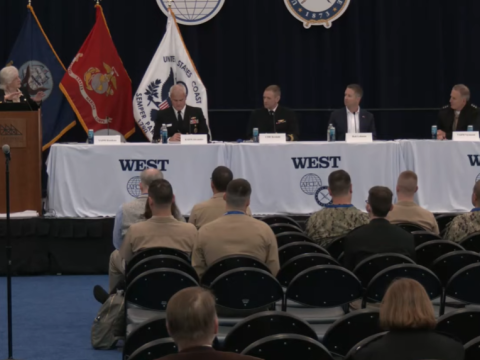China Likely to Go Asymmetric if Conflict Breaks out With United States
It would not be warfare as usual if China and the United States find themselves in an armed conflict.
The United States cannot expect to fight on its own terms if it finds itself in an armed conflict with China. The Asian power is likely to resort to unconventional or even asymmetric operations to deny U.S. forces their strong points, offered China experts in a panel at West 2012 in San Diego. Dr. Alan J. Vick, senior political scientist at Rand Corporation, noted that the recent U.S. conflicts all started at a time and in a manner of U.S. choosing, and this followed a rapid deployment of U.S. forces to forward basing locations. China would not permit that, he said. It would argue that deploying forces to forward bases is an aggressive action, so it would feel free to launch pre-emptive strikes using its newly incorporated tactical ballistic missile strike capability. Lt. Gen. Wallace Gregson, USMC (Ret.), principal, WC Gregson & Associates, Inc., and former assistant secretary of defense for Asian and Pacific security affairs, warned that the United States should investigate space/counterspace capabilities and cyber. A Chinese cyber weapon can attack from its sanctuary without warning, and it could cripple or shut down essential networks in the United States. Vick called for new infrastructure investments-base hardening and active defense; long-range strike aircraft and missiles; longer range stealthy cruise missiles; and improved stealthy intelligence, surveillance and intelligence. Gregson said that U.S. forces must learn how to do without their "exquisite communications" even they are disabled or modified just a little bit. Vick pointed out that Chinese and U.S. military forces could confront one another in a number of potential situations, and China is the only country that could do that. Potential flashpoints include Taiwan, the Philippines, and Japan. He added that a North Korean implosion may be more risky than an invasion of the South by the North. China fears that U.S. forces may wind up on their border if the North collapses.


Comments